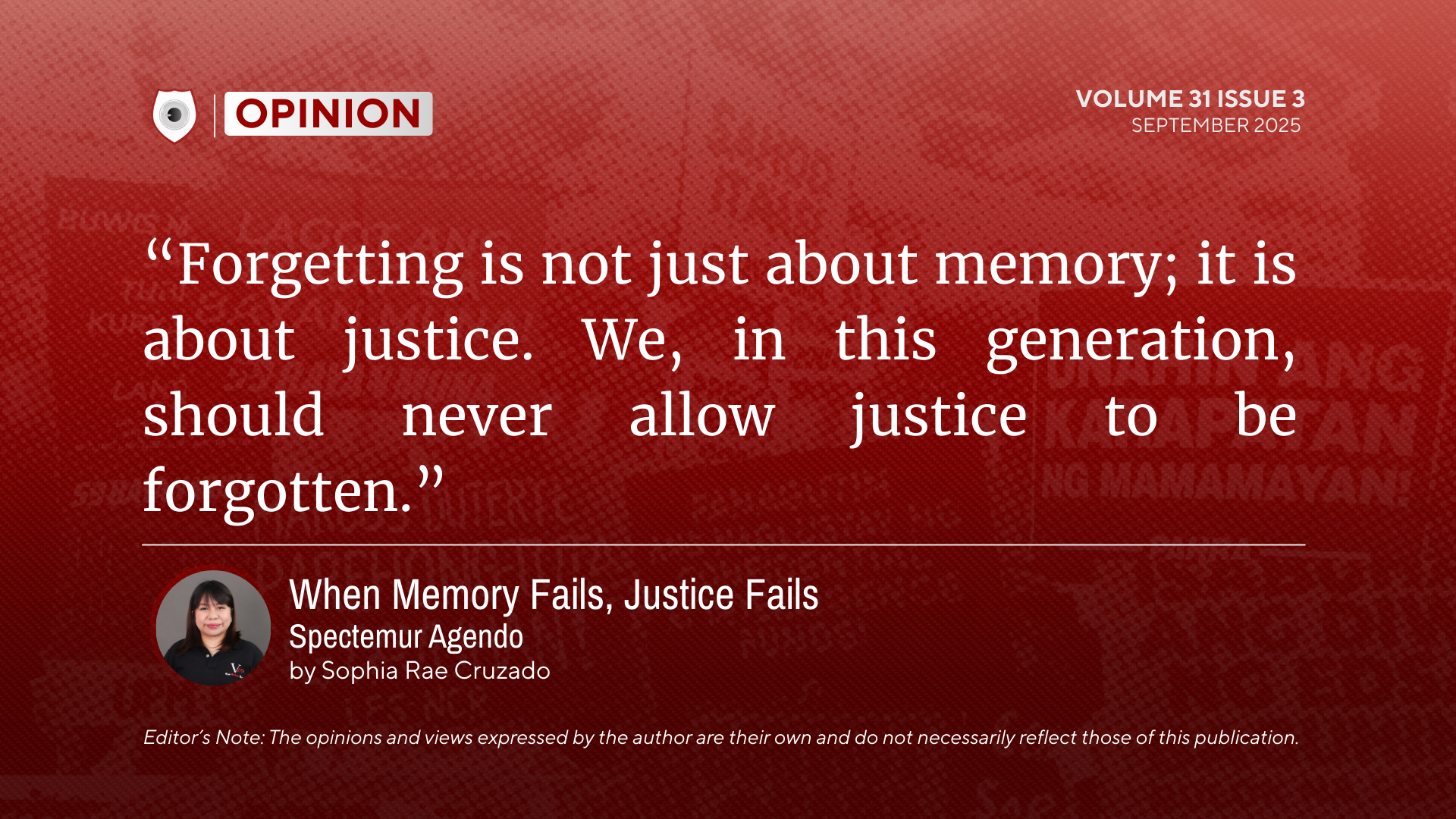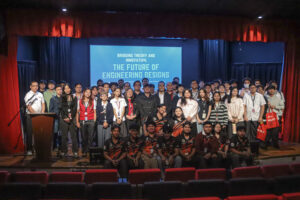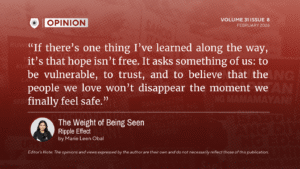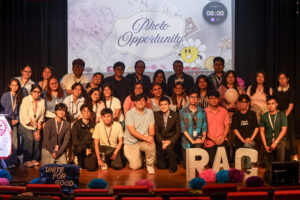Written By Sophia Rae B. Cruzado | September 15, 2025
When Memory Fails, Justice Fails
AS a Filipino, I sometimes feel both amazed and disappointed at how fast the Philippines forgets. Every time a scandal or controversy sparks, everyone talks about it. News channels cover it non-stop, and social media explodes leading to eventual backlash. People act like it is the most important issue in the country, but in a few weeks, days, and months, it all disappears, the noise suddenly goes quiet. We all move on to the next controversy, may it be on an artist or another political issue, even if the previous one was never resolved. It makes me wonder, do we care about change, or do we just enjoy drama?
I feel frustrated because forgetting has become part of our culture. Instead of demanding long-term answers, we allow our leaders to escape accountability for our attention to shift. We keep playing the same tune of scandals and silence, but nothing ever changes.
One recent example would be the case of Bamban Mayor Alice Guo. At first, people were glued to the Senate hearings because of its revelations. A mayor with unclear background, questionable documents, and possible ties to Chinese POGOs. Some senators even said that she might not be a Filipino. Imagine a mayor, a local leader in the Philippines, was hiding her true identity. Everyone was outraged because this was not just about her but about the national security and integrity of our government.
But where are we now? The headlines faded, and people’s attention moved somewhere else. The question, however, still remains: who really is Alice Guo, and how did she rise to power so quickly with falsified documents? If we let issues like this fade away, are we not risking our country’s security? For me, this shows exactly why forgetting is dangerous, the truth is left hanging and those who should be accountable are allowed to slip away quietly.
The same thing happened with the West Philippine Sea. As students, we are taught in school to love our country and defend our sovereignty. But how can we defend it if the issue is only raised when there is something new to sensationalize and then dropped the moment another controversy takes the spotlight. Filipino fishermen are harassed, our coast guard is blocked, and yet we act like nothing is happening once the controversy fades.
I remember when the Philippines won the arbitration case, everyone was proud, and it finally felt like we stood up against a giant. But what happened after? Our leaders used it for speeches, but the struggles of the fishermen did not change. I feel angry whenever I see videos of our fellow Filipinos pushed out of our own waters while we just shrug our shoulders after the headlines die. If we forget easily, we are basically giving away our future to another country.
But it does not have to be this way. I believe there are solutions, and it must start with us.
First, the media should practice follow-ups, especially the big ones. It is not enough to cover scandals when they are new, they should give regular updates and push for closure. Second, our schools should teach us not just to memorize the facts but to understand the ongoing issues so that the present generation has awareness of what is happening to our country. Third, as ordinary citizens and taxpayers, we should not stop demanding accountability. Even simple acts like sharing updates, asking questions, or reminding others what the issues are can make a difference.
Lastly, government institutions need to show real results, not just hearings and investigations that go nowhere. Cases should be concluded, reforms should be implemented, and officials must face consequences. Forgetting should never be an excuse for inaction.
I’m frustrated because I see how our country repeats the same mistakes, but hopeful because I believe this generation can break the cycle. We do not have to accept this culture of forgetting. We choose to remember and keep asking hard questions and to fight for accountability.
Because in the end, forgetting is not just about memory; it is about justice. We, in this generation, should never allow justice to be forgotten.




